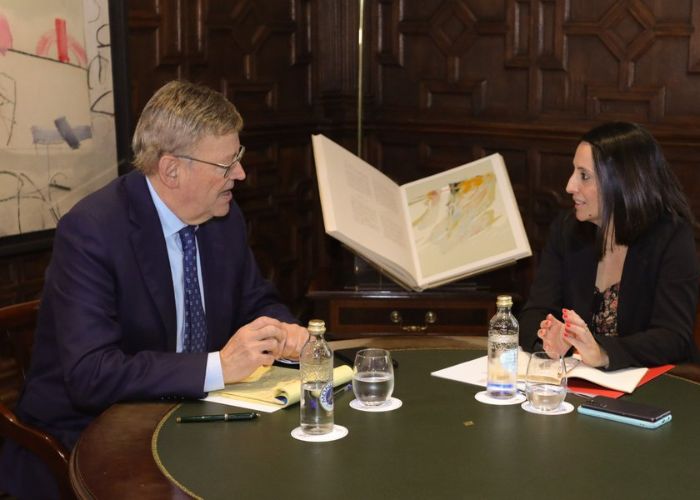President of the Valencian Community, Ximo Puig announced that the Generalitat will finance 50% of the cost of urban buses in municipalities that offer free urban transport for young people up to 30 years old. This is yet another step to help Valencian families cope with inflation. And at the same time to promote the use of public transport.
During a local Spanish TV interview with À Punt, Puig stated,
We must do what we can to help citizens. For example, the Generalitat will finance 50% of the cost of public transport for municipalities that offer free transport for under 30s”. He continued, “we cannot return to the social fracture”. Furthermore “public transport is the future, and stimulus measures such as free local transport or transport dependent on the Generalitat are fundamental”.
Citizens of the Valencian region have even more reason for celebration.
Valencian families celebrate día de la Cumunidad Valenciana
Tomorrow (Sunday) October 9, Valencian families will celebrate the national day of the Valencian Community (Día de la Cumunidad Valenciana). On this day in 1238, King James I the Conqueror entered the city of Valencia, ending the reign of the Arab King Abdul Djumayl Zayyan, and therefore freeing it from its Moorish ruler.
The day is also a tribute to the Valencian flag, the “Senyera”, the symbol of the community.
Since 1365, Valencia’s Senyera flag has presided over the annual festivities. The Senyera flag is lowered from the main balcony of the Town Hall. It is then carried in a civic procession to the Parterre, where a floral tribute is laid before the statue of King James. Following the event, and after the Valencian anthem has been sung, it is taken to the History Museum.
St Dyonisius
October 9 is also the day of St Dyonisius. This is like St Valentine´s day, where you give a gift to the person you love. In Valencia the custom is for men to give the women what is known as a “Mocadorà”, or “Mocaorà”. This consists of a bundle of marzipan sweets shaped as fruit or vegetables wrapped up in a handkerchief or silk scarf.
They can of course, be given as gifts to mothers or daughters as well as wives and girlfriends.
As with most traditions, there are many stories behind the origin. However, InSpain.News like the sound of one of the most widespread versions. This says that when King James I and his wife, Violante of Hungary, entered the city of Valencia, after defeating the Muslims, they were met by the inhabitants with gifts of fruits and vegetables from the local orchard and farms, wrapped in silk handkerchiefs.


